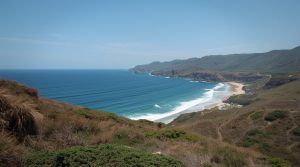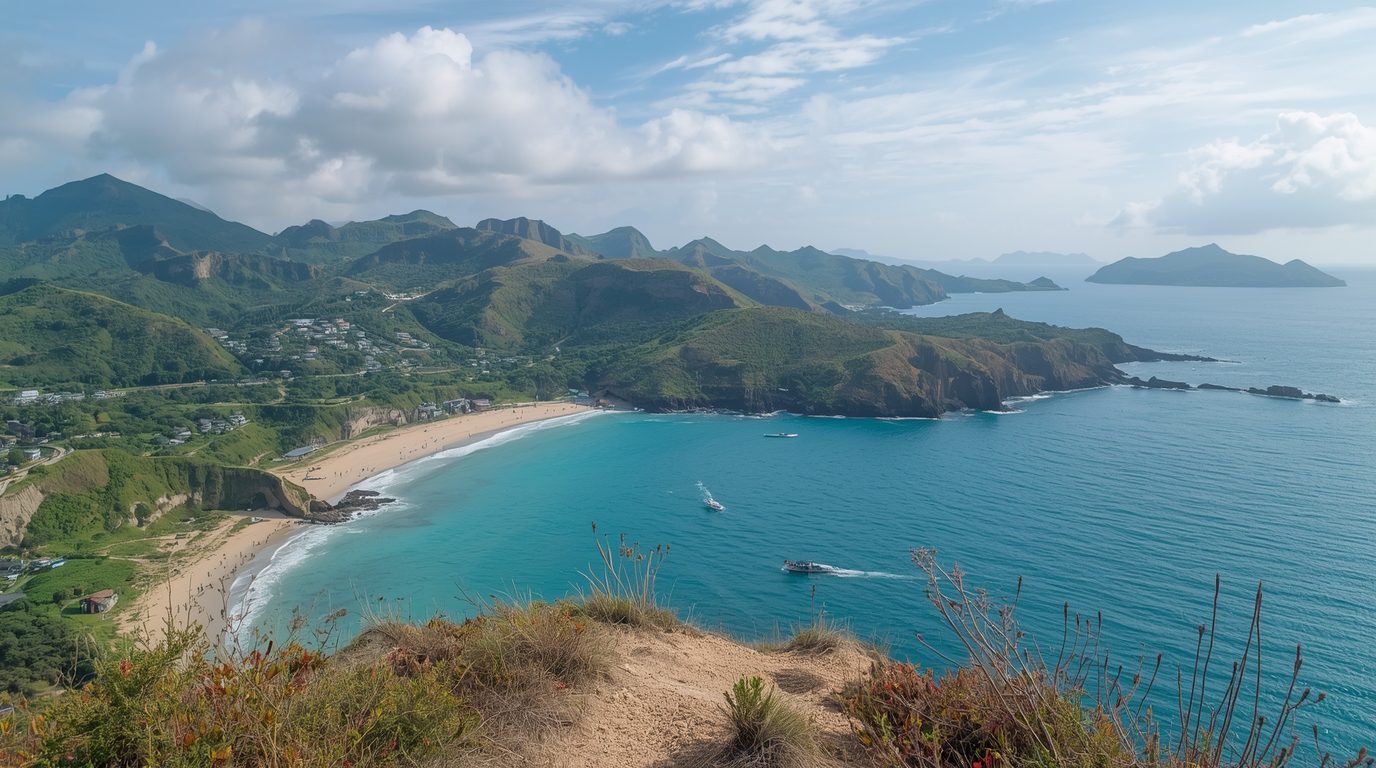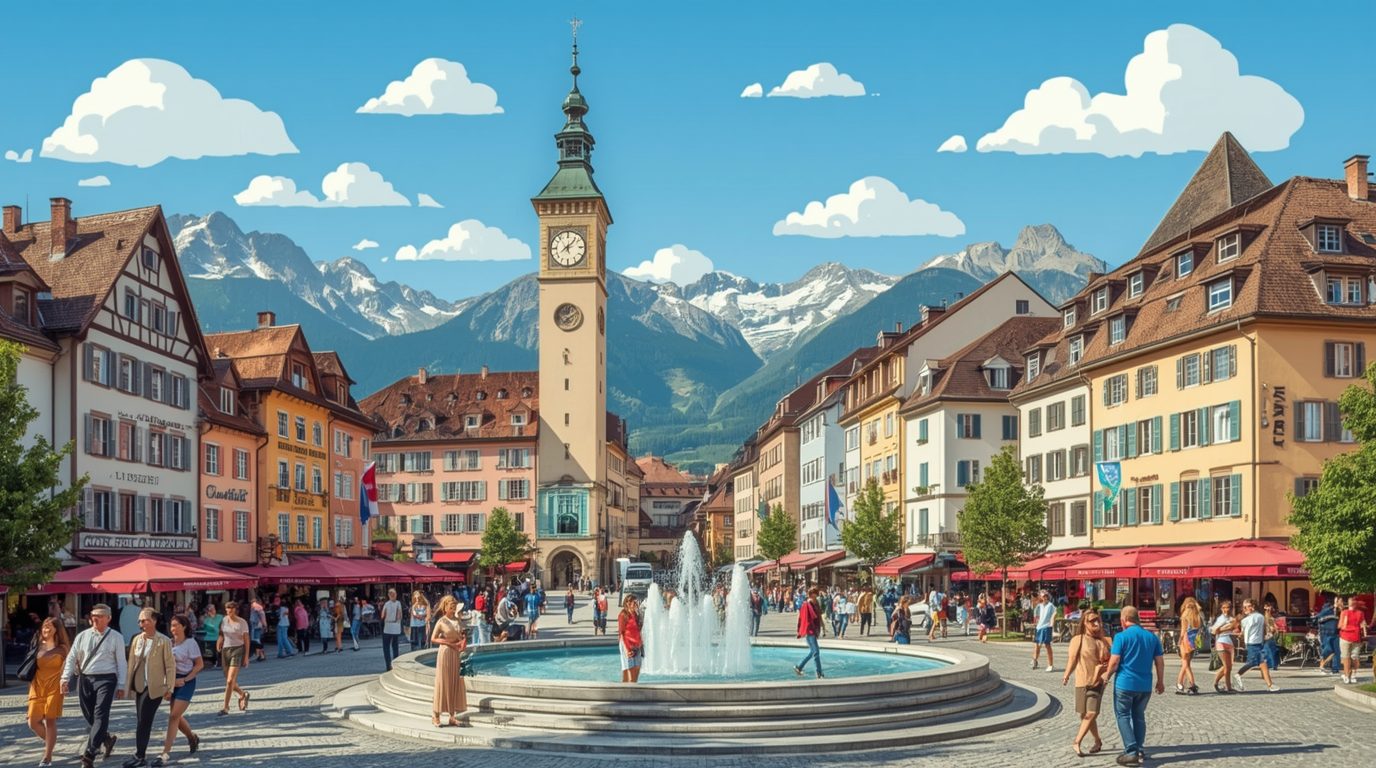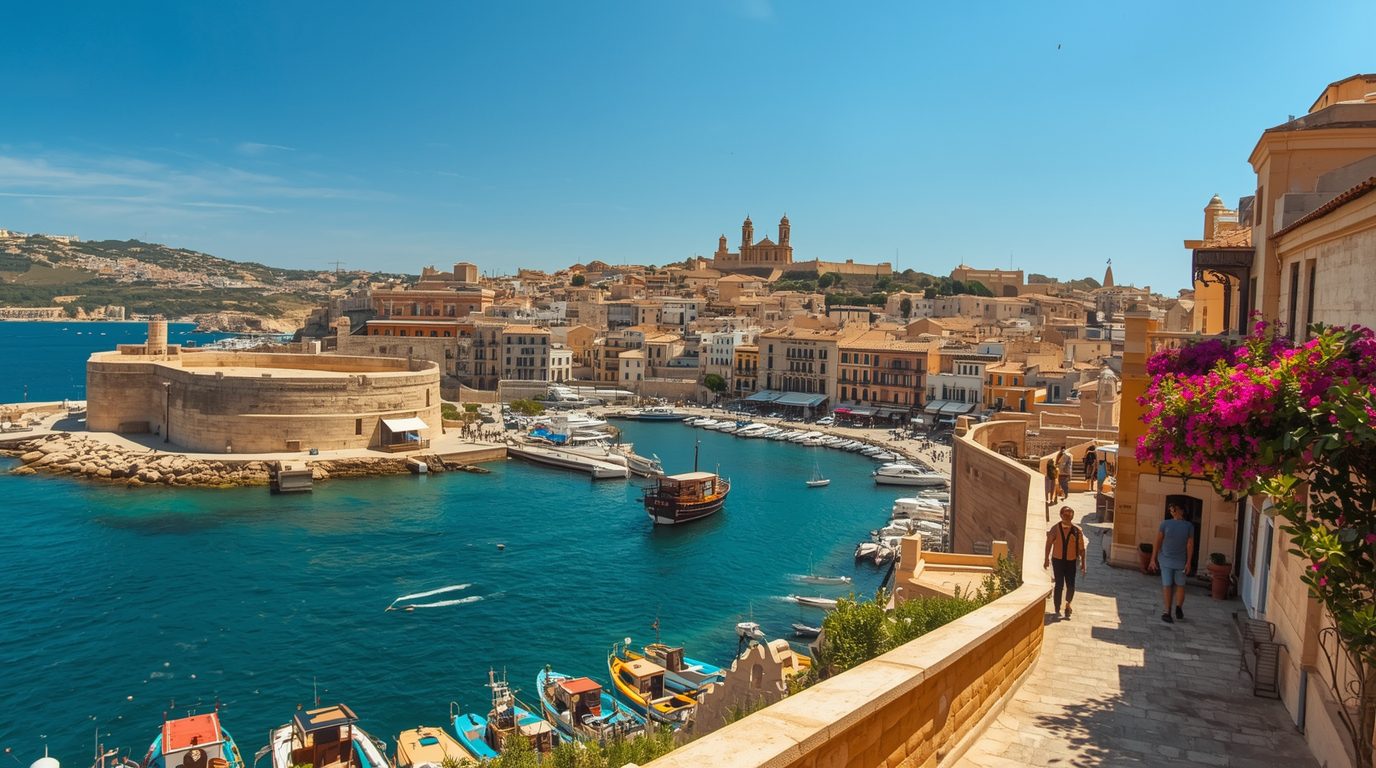Jeju, the ‘Hawaii of South Korea,’ Issues Multi-Language Guidelines to Curb Irregular Behavior From Foreign Tourists in the Wake of Post-Pandemic Tourism Surge
Jeju Island, the volcanic island in South Korea often compared to Hawaii, is taking unprecedented steps to manage the behavioral issues caused by foreign tourists by issuing multi-lingual guidelines detailing the expected behavior on the island.
Jeju has long been known for its breathtaking sapphire blue waters, green tea fields, lush vegetation, and the majestic shield volcano Halla-san which is snow capped. Over the years, the island has been receiving both international and domestic tourists, but the dramatic rise in foreign visitors has raised concerns about cultural and environmental issues in the region. To help manage such situations, authorities in Jeju have published 8,000 copies of a guide explaining tourists’ minor offenses, possible fines, and expected behavior in the region.
Surge in Tourism and the Post-COVID Boost
Ever since restrictions for COVID-19 were lifted, the tourism rate for Jeju island has gone up significantly. According to the Jeju Tourism Association, foreign tourism for the island reached 1.9 million tourists, which is nearly four times the rate in 2024. Additionally, the overall travel count to the island surpassed 13 million, which included both domestic and international tourists. The flight route from Seoul to Jeju is the busiest in the world, and the International Air Transport Association (IATA) stated that in 2024 over 13 million people undertook the 1 hour and 15 minute trip.
The social factors as a result of the post-pandemic tourism boom has proven to be both a challenge and a benefit for the economy. The overall spending of tourists resulted in a significant increase in revenue for local businesses, including hotels, restaurants, and even travel agencies. However, the locals of the island have increasingly started to complain about the behavior of foreign tourists. Publicly reported cases of bad behavior have included littering, careless driving, and other offensive acts, which has put a lot of pressure on local government to restrict foreign tourism.
Addressing residents’ grievances, local authorities have said that a small group of tourists have behaved inappropriately, disturbing the peace and the local communities’ way of life. The newly issued guides are part of a broader strategy that seeks to inform the visitors about local customs, responsible tourism, and protecting the cultural and environmental heritage of Jeju.
Contents of the Tourist Guide
As the guides are issued in Korean, English, and Chinese, they are provided to educators in order to promote responsible tourism and listed minor offenses that can attract a fine of 50,000 KRW ($35.77 USD) such as:
- Smoking in non-designated areas
- Damaging or disturbing cultural and natural environments
- Littering or waste disposal
- Ignoring pedestrian regulations and jaywalking
“Violating culturally accepted standards alongside legal obligations will also lead to misdemeanor imprisonment or in essence, a minor fine,” the guide adds, clarifying a legal and cultural framework of obligation and respect associated with the island.
Targeting basic behavioral norms enhances compliance and helps to reduce conflicts that are avoidable and that tourists pose with the residents. Considering Jeju’s high popularity as an ecotourism family-friendly destination, the small infractions like damaging the native flora or smoking on a bus will have an outsized impact on the visitors’ experience and the residents.
Viral Incidents and Social Media Backlash
A few incidents have seemed to support the idea that foreign visitors to some countries have little regard for the local customs. For example, a video of a foreigner smoking on a bus went viral in South Korea and evoked a lot of criticism from netizens. In the same light, there was another viral incident where a foreign child was seen defecating on a sidewalk which led to public discourse on the need for fines and parental accountability.
These events have gained notoriety thanks to social media. Local people have been very vocal about social media enforcing stricter rules. Authorities understood that there is a cultural gap that, if not attended to, will lead to misunderstandings and damage the image of Jeju as a safe, family-friendly place.
Comparison with Other Overtourism Destinations
Jeju is trying to control the behavior of their visitors, which is a clear sign that they have embraced a global trend. Other popular destinations experiencing overtourism have faced the same struggles, prompting local governments to set rules and guidelines to deal with disruptive behavior from visitors.
South Korea: In addition to Jeju, other cultural hotspots have taken action, including rest of Korea. Other cultural hot spots in Korea also have taken measures to deal with the impact of visitors. For example, Bukchon Hanok Village in Seoul imposed a noise and crowding control by setting a curfew for non-residents.
Japan: For years Kyoto has offered etiquette coaches for inbound travelers. In the geisha district Gion, which is famous for its geisha culture, has a few restricted areas for photography, and has rules for tourists on etiquette for the sake of the traditional atmosphere.
Indonesia: Bali, as an international tourism hotspot, has dealt with unruly tourist actions for a long time which has led to the introduction of fines, mandatory etiquette advertising, and even courses for tourists.
Europe: Residents of Venice, Barcelona and Parisian have increasingly succumbed to what tourists have dubbed ‘overtourism’. In Barcelona, as a response to overcrowding, some locals were seen with water guns shooting at unsuspecting tourists. Venetian and Parisian residents and workers have held protests due to the rising number of tourists. Strikes have also been held by the Louvre and other museums due to the overcrowding.
As pointed out by Ruben Santopietro, CEO of Visit Italy, the access for tourists should be balanced with the needs of the locals: “A city where residents are not satisfied is a city that doesn’t work. It loses its identity completely. Residents feel excluded and neighborhoods become touristic.”
Jeju has taken a more proactive approach by setting rules which in turn puts the island’s culture and environment at risk.
Economic Considerations and a Plan for Tourism
The tourism industry is a linchpin in Jeju’s economic development as it creates and supports jobs in many sectors – hospitality, transport, retail and dining. Since covering COVID-19, the island became a favorite for travelers, as it offered scenic views and outdoor activities that came with comparatively easy air travel.
International tourism has, however, come with challenges, especially concerning infrastructure and natural resource use as well as the allocation of public space. Jeju authorities are trying to minimize harm and maximize economic benefits of high visitor numbers by educating tourists and enforcing minimal fines.
The guide also acts as a proactive measure. The government does not want to wait until harmful behavior occurs, and instead issues guidance to lessen reliance on punishment-driven solutions.
Cultural Education and Awareness
The use of multiple languages in the guide is a testament to Jeju’s commitment to cultural education. It is obvious that many travelers, especially those moving from western countries, may not be accustomed to South Korean customs. The use of English and Chinese, the most frequent languages for international travelers, means that tourists can not only be informed, but also comply with local expectations.
The initiative also shows a change in tourism management: from reactive enforcement to proactive cultural diplomacy. Through visitor education, Jeju strives to cultivate a balance in the tourism ecosystem where visitors are cherished but also bear responsibility for their actions.
Environmental Issues
More than just a cultural site, Jeju Island has a fragile ecological ecosystem. From the UNESCO-listed lava tubes to the island’s volcanic landscapes and flora, Jeju’s unique features are facing dire environmental impacts from a surge in visitors.
Small acts of vandalism, like littering the area or damaging nature, pose a substantial threat to the ecosystem. Jeju aims to balance the sustainable protection of its environmental assets by instituting fines and providing educational guidance.
The inclusion of environmental actions by the guide demonstrates the government’s willingness to protect the cultural and natural resources for future generations.
The Involvement of the Other Local Communities
Local communities have repeatedly raised awareness of the effects of tourism overpopulation. Social media and public spaces help to voice complaints about the strain on public spaces, infrastructure, and the day-to-day life of the people.
Official policies and fines are aimed at reducing the stress caused by visitors to Jeju Island’s local residents. This method focuses on mitigating the friction between visitors and residents while also maintaining the island’s character and public safety. At the same time, it allows residents to continue leading a good quality life.
In addition to that, encouraging the local population to participate in the decision-making processes of the tourism management helps protect the local population’s social wellbeing and brings with it a collective sense of responsibility meaning profits should not damage social harmony.
Global Lessons and Implications
The approach Jeju takes can serve as an example for other locations facing difficult issues:
- Effective Enforcement: Multi-language guides relieves tourists of the burden of misinterpreting rules and helps avoid unintentional violations of rules.
- Proactive Prevention: Minor penalties and set rules can prevent minor conflicts from growing into more complex issues for resolution.
- Respect for Traditions: Teaching customs to tourists improves the tourism experience for everyone.
- Care for the Environment: Popular locations linked the actions of visitors to the preservation of the environment, ensuring that the locations are sustainable.
- Public Participation: Involving the local population in tourism management policies and decision build trust and ensure policies meet the needs of the residents.
Jeju has, through these steps, aligned with the world standards for the responsible and sustainable tourism. The island’s model should be implemented in other places facing serious social, economic and environmental challenges in the social and economic growths.
Conclusion


The post-pandemic boom of tourists visiting Jeju Island includes the issuance of multi-language behavioral guidelines. This tourism effort is designed to manage visitor behavior while safeguarding the local culture and environment. The island aims to strike a balance between a positive tourism experience and ensuring a high quality of life for residents by educating foreign tourists, enforcing minor fines, and enlisting local community engagement.
The consequences of overtourism and unsustainable travel have resulted in the issuance of multi-language behavioral guidelines. Jeju Island approaches these issues with proper planning, cultural education, and community engagement. The island’s example highlights the need for preemptive planning while other resorts and countries are facing similar pressures.
The effects of these guidelines will be observed globally as Jeju Island hopes to find a balance between the booming economic growth tourism provides and the environmental and cultural impacts that accompany it. Other governments, tourism agencies, and world destinations are watching how these measures will be successful for South Korea.
Stay updated with reliable news:
Sports: Sport Flash HQ
Business: Biz Rush
Weather: The Climate Post
Travel: Neon Report
US Local: 24 Hour Bulletin
India Finance: The Lucky Ledger
General: The Chrono Post




